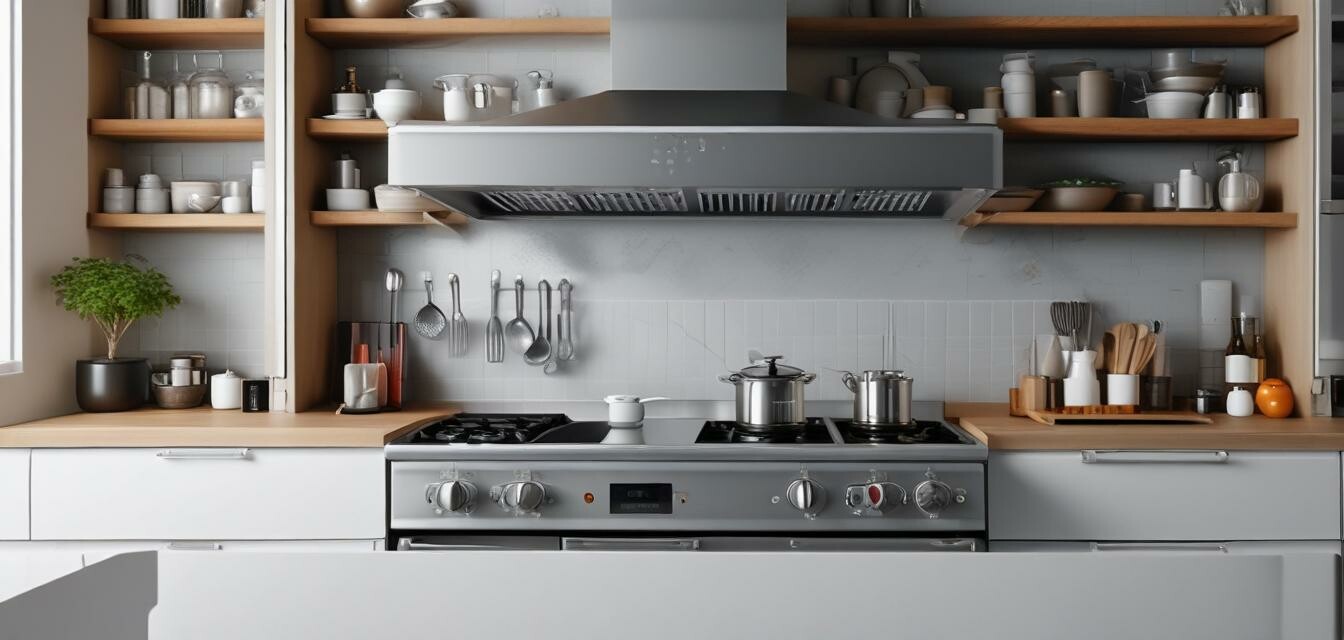
The Role of Technology in Modern Cooking
Key Takeaways
- Technology has made cooking more efficient and enjoyable.
- Smart appliances are enhancing kitchen experiences.
- Cooking apps help in meal planning and recipes.
- Emerging trends like virtual cooking classes are gaining popularity.
- Embracing technology can lead to healthier and sustainable cooking practices.
The journey of cooking has evolved drastically from traditional methods to a more modern approach facilitated by advancements in technology. As we dive deeper into 2025, the role of technology in cooking continues to grow, fundamentally changing how we prepare and enjoy food. This article explores the latest technological innovations that are transforming our cooking experiences.
The transformation of cooking appliances
One of the most noticeable changes in cooking is the emergence of smart appliances. These devices not only simplify cooking tasks but also add a new dimension of convenience to the kitchen.
| Smart Appliances | Features | Benefits |
|---|---|---|
| Smart ovens | Remote control, recipe suggestions, cooking timers | Cook meals perfectly with minimal effort |
| Smart cookers | One-touch cooking, monitoring via app | Ease of use and precise cooking |
| Refrigerators with Wi-Fi | Inventory tracking, shopping list generation | Reduce food waste and save time |
Cooking apps changing the culinary landscape
Apps dedicated to cooking are on the rise, enabling home chefs to explore new recipes and techniques easily. These tools not only serve as a source of inspiration but also promote healthier eating habits.
- Meal planning applications: Simplify shopping and cooking by organizing meals ahead of time.
- Recipe apps: Offer diverse recipes with step-by-step instructions and adaptive cooking times.
- Nutrition tracking tools: Help users maintain a balanced diet by logging food intake.
To learn more about cooking apps and how they can change your culinary practices, visit our Cooking Buying Guides section.
Connecting with fellow chefs via technology
As cooking becomes more connected, there’s a strong emphasis on community-building through technology. Online platforms offer budding and experienced cooks alike the opportunity to share ideas, recipes, and experiences.
- Virtual cooking classes: Enterprising chefs are hosting live classes, allowing participants to cook along in real-time.
- Social media groups: Platforms like Instagram and Facebook are buzzing with cooking enthusiasts sharing tips and tricks.
- Food blogs and forums: Engaging with others who share similar culinary interests can lead to learning and inspiration.
Sustainability in modern cooking
Technology is also enabling sustainable practices within culinary arts. Smart solutions are being developed to reduce waste and promote eco-friendly cooking habits.
| Sustainable Technologies | Impact |
|---|---|
| Composting gadgets | Turn kitchen waste into compost, enhancing soil quality. |
| Energy-efficient appliances | Reduce energy consumption, benefiting both your wallet and the environment. |
| Water-saving technology | Conserves water during cooking, which is crucial in many areas. |
To get more insights on the importance of sustainable ingredients in cooking, check out our Specialty Ingredients section.
Future trends in culinary technology
With technology evolving constantly, several trends are emerging that will shape the future of cooking.
- Increased adoption of artificial intelligence in cooking processes, offering tailored recipes.
- Expansion of augmented reality experiences for immersive cooking classes.
- Integration of drone technology for delivering fresh ingredients right to your doorstep.
These trends promise not only to enhance convenience but also to create engaging cooking experiences for everyone interested in the culinary arts.
Conclusion
In conclusion, technology is revolutionizing the way we approach cooking. From smart appliances that make meal preparation effortless to apps that enhance our culinary creativity, the possibilities are seemingly endless. As we move further into 2025, embracing these innovations not only promises to elevate our cooking experiences but also encourages sustainable practices and community connections in the culinary world.
Pros
- Increased efficiency in meal preparation.
- Enhanced creativity through diverse recipe options.
- Improved connection with culinary communities.
- Sustainable cooking practices fostered by technology.
Cons
- Investment in smart appliances can be costly.
- Dependence on technology may reduce basic cooking skills.
- Potential security issues with smart devices.